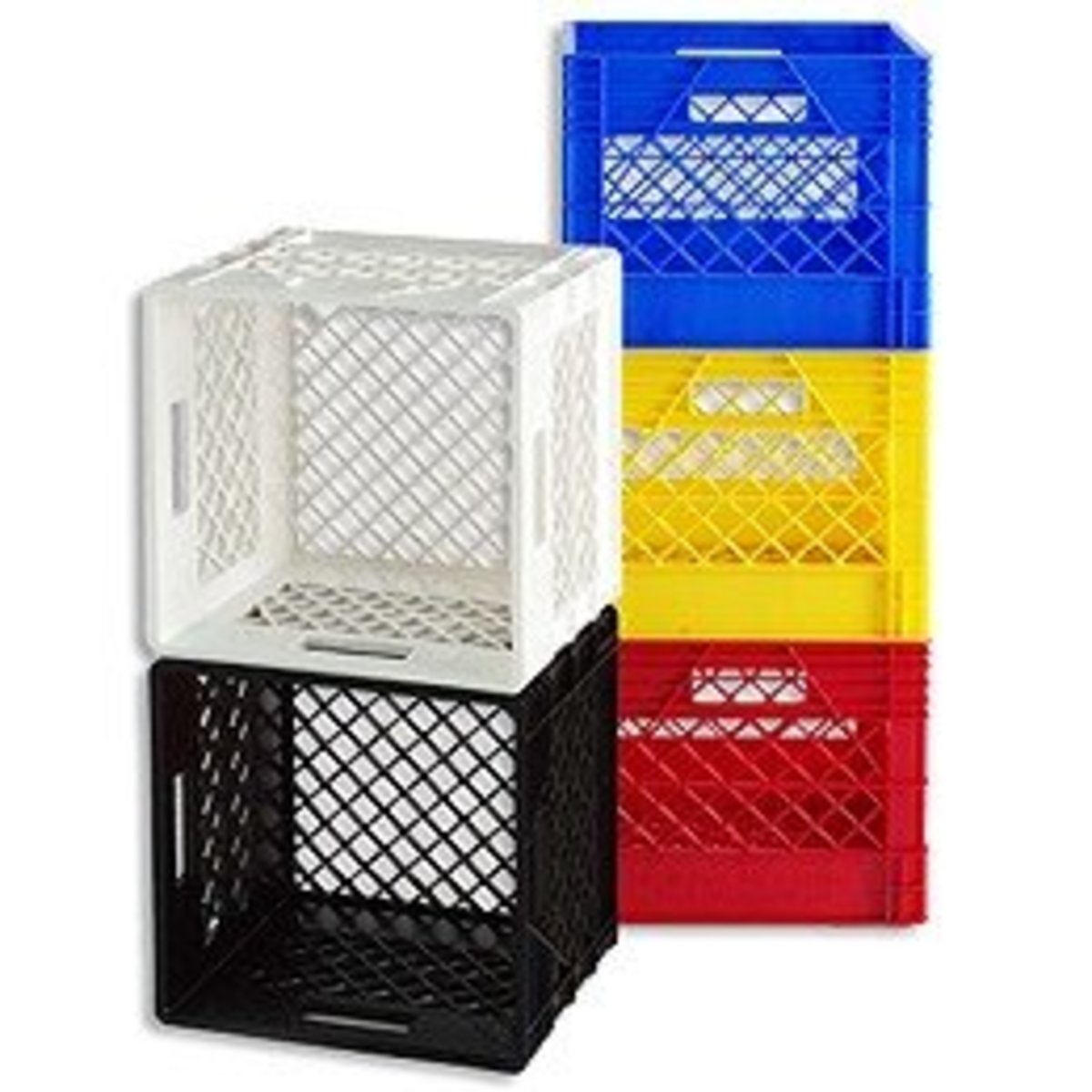Guide to Saving Money on College Textbooks
First: Educate yourself – The Stats
We all know college is expensive, and after recovering from the sticker-shock of rising tuition, students must still factor in upwards of $1,000 per year for books. That means those pesky loans will have to be adjusted accordingly to cover the cost of books and materials for classes.

Second: Make a Plan, Stan!
When looking for textbooks remember to plan ahead, stay organized, and document everything. It will help you in the long run – trust me. I bought all my books new from the bookstore my first year without shopping around. Then I promptly kicked myself. Hard. I could have saved myself hundreds of dollars on my Pell Grant, putting some much needed cash in my pocket.
Third: Stay Organized – Seriously.
I can’t stress this enough. Mostly because if you want to save money, it may take a little work and research. After all isn’t that what you do for class anyway? (Nod and say “Yes.” Good, let’s continue).
Before you begin, even before you finish reading this article, have some paper and a pencil handy. Heck, use your word processor, whatever works, to jot down the resources that will work for you. Once you get into looking for books, you are going to want to make note about where you’re getting them (Hopefully not the dreaded over-priced campus bookstore), when to return them, to compare prices, and whatever other ideas you come up with that you want me cover.
Stack 'em Up!


It Happened to Me. Also known as “Well, that’s embarrassing!”
Remember to keep all receipts, confirmations, and boxes from your purchases. I keep mine on paper, in a folder, in a fireproof safe, for one specific reason: I returned a book to the wrong company! Don’t be me. I have done it all, and am not proud of that one…It was a pain to track down which company I accidentally returned the wrong book to and had to email and call around until I found it. Thankfully, every site I contacted was pleasant and had a process in place in case something like this happens.
Plan ahead – But not too far ahead.
You want to make sure you get your books in time for class, but you don’t want to be stuck with books for classes you might drop before the semester even starts. Typically you have between 7 and 30 days to return a book for a refund, so plan your purchases and rentals accordingly.
So far, I have yet to ind a "best time to buy college textbooks", much like best days of the week to buy airline tickets. (Darn!)
Speaking of planning…How long is your semester? Typically they can run from 16 weeks down to a condensed, 5 week course, maybe less depending on your University. Many sites for rentals allow you to choose 30 to 150+ days. This can significantly reduce the cost of a book if you don’t need it for a full term.
Buy or Rent Textbooks?

Textbooks: Buying Vs Renting.
For me, this is a no-brainer. I rent when I can. It’s almost always cheaper. Sometimes a site won’t have the book I want available for rental. Why, you ask? Good question, because sometimes (when I have a hip teacher) the books assigned might be novels instead of your run-of-the mill textbook, which is great! Because it might actually be a good class and a decent instructor who sees the value in real books!
That being said, remember to look into ebooks. I have found that it’s a 50/50 chance of them being cheaper than a rental. If you can stand to have a book in screen form, by all means, go for it! This will also lighten your load in that fashionable book bag or man tote you are hauling all over campus.
Remember: Watch the wear and tear!
Most companies don't mind some highlighting or writing in the margins. Just don't fill in all the answers with pen and expect to be able to return the book. You could be out some serious money if you have to buy the book from the rental site.
Sometimes you have to buy.
I hate to say it, but some colleges have books or classes specific to the university. This is a bone of contempt for many people, and it is easy to see why. It forces the student to buy a specifically made book for that college in brand new condition, leaving little to no value the second it’s opened. This also occurs with supplemental materials like CDs for homework. Many math and sciences are that way now. Sometimes, if you are lucky, you won’t need to buy a new book the next year if you are taking the continued class (101, 102, 103 etc). The book continues for the next class and the code for the homework site or CD remains valid. It’s worth looking into your crystal ball for this one, especially if you are like me and want to split up that awful math class, picking it up down the road.
ebooks vs. Paper

Word of the Wise.
Check with your future instructor to make sure that laptops and other devices are allowed in the classroom. I know, I know. “But, it’s 2014! Why wouldn’t I be able to use my laptop or chosen electronic device to view my Facebook profile…I mean textbook!?” Exactly. But in all seriousness, some colleges tenure teachers who are older than the hills and still think that pure lecture and 100 pound books are the way to go. Also, your may take a lab course, and don’t want to risk drowning or setting that iPad on fire while learning the periodic table. Safety first!
To Keep or not to Keep – That is the Question!
Thinking of keeping books for future reference? Don’t. It’s a waste of money. Unless you are hardcore into what you are studying or know that you will refer back to those books down the road. I kept a few English books to use for grammar refreshers, while great and (generally) timeless, I found googling everything is much easier than keeping cumbersome books for “quick” reference guides. Also, certain books will be outdated by the time you reach grad school and beyond, so if you do choose to keep a book or two, choose wisely. It’s probably safe to say that history isn’t changing anytime soon, nor is Einstein’s theory of relativity (I hope). Which leads me to the elusive realm of mystery…
Coffee Break! I know, this is a lot of info to take in, but you get through lectures on a daily basis, so this is a cake walk, Bueller!

Other Ways to Save on College Textbooks.
Extra ways to save money on textbooks are easier to come by than you think. With a little persistence and even less pride, you don’t have to go it alone. Allow me to explain:
- Remember to take advantage of coupon code sites such as retailmenot.com. Also, on occasion, if you rent from a website, they will offer a future discount come next semester, or referral discounts. This is where that organization comes in handy, folks. Keep a print out of that code handy, because let’s be honest, by the time you reemerge from that pile of books, you aren’t even going to know what happened to your social life much less a coupon code.
- Make sure to note shipping costs. While you can get a book super cheap, the darn thing could weigh a ton. If you order online, you need to factor in shipping prices to the order. Not all sites total the price for you. Though, I have seen that some do, which is nice, and even better, some have free shipping and packaging materials! I am a pack-rat by nature but not everyone has empty boxes and bubble wrap sitting around.
- Have a day job? Have a copier? Get a big old binder for this one. (You might want to check you copyright laws for this, but portions of books for personal use aren’t going to get you arrested). Another fun fact about your author: For my first welding class I found the book in the school library and was able to copy only what I needed out of it. It came in very handy as I saved on book bag weight and only carried what I needed. I could also mark up the pages all I wanted! Yay! You can also contact your professor and find out if they will cover the entire book or just several chapters, saving you ink and paper.
- Want to go paperless? Sure! Scan textbooks and create PDFs for them so you don’t have to lug around anything extra. Easy peasy.
- Want to make some friends? Network? Bargain? Contact your teacher ahead of time and ask if an older edition will suffice. I did this for a technology class and was informed by my teacher that very little content changed from one year to the next. Straight from the horse’s mouth, I bought the darn book for a fraction of the cost of the brand spanking new edition.
- Also in regards to contacting teachers, I had a literature teacher suggest that we not buy the required books because most of what we read was already online. That was nice of her! Honestly, most teachers I have done this with are understanding and are willing to work with you. After all, they had to do the same and may be going through this with their college-age kids now.
- I have even seen students sharing books. So that’s always a (risky) option. Or you can put an ad up at your school, and check local listings within the college community to trade or buy books from fellow students. That way you can keep from letting the big businesses wring you out while putting gas in a classmate’s car! Bonus: Talk to that good looking upperclass(wo)man and make a study date!
- I found that I can borrow some textbooks from the local library. If my branch doesn’t have it, they can get it form another one. You can usually renew it a few times to stretch the semester (comes in handy for those short semesters). But, if you are a rebel, you can just pay the fines. Use your ethical discretion on this one.
- Always check out scholarships. Some schools offer them for books, tuition, or both. You can find one tailored to you and your program of study by doing an internet search.
Think Outside the Box!
These are some places you may not have thought to look for textbooks before. Some are free, others are incredibly low in price. Even if you don't need the book, take a look at the next topic....You're welcome.
- Thrift stores
- Garage sales
- Rummage sales
- Church sales
- Auctions
- Library book sales
- Used book stores (duh)
- Flea markets
- Re-sale stores such as Habitat for humanity
- Thriftbooks.com
- bookoutlet.com
- Estate sales (Let's hope it was a professor who kicked the bucket)
- craigslist.org
- paperbackswap.com
- Your school's social media sites and forums
- Dumpster diving (Let me know how that goes)
- Any other suggestions?
Make Money Online. Sell Used Books
- Making Money Online Selling Used Books
Take charge of your financial future by making money online selling used books with your own Internet bookselling business, and earn $500 - $5,000 per month in your spare time.
The Best Websites to Sell your Textbooks Online
- The Best Websites to Sell your Textbooks Online
Sick of being frustrated with low campus bookstore buyback prices? Learn how to sell textbooks online for far more money.
Cash for Books
Check out your mobile app store and get this bad boy on your phone ASAP to make money on your used books! It has a built in scanner and is very user friendly.
cash4books
With all the information you received on buying and renting books, you just reverse the process. Go to the local bookstores or to the online site that you bought the book from and sell it back. We all know though, that you won’t get diddly squat for some of those used books. But the sooner you sell them back, the more you will make instead of waiting until next semester with the risk of a new edition coming out and students not being as well informed as you are on that whole “new edition” conspiracy.
Lowest Textbook Rental Prices
- Rent Textbooks Cheap - Price Compare Textbook Rental Sites
Rent textbooks cheap! We price compare the textbook rental stores and stores that sell textbooks. Using our price comparison can save you up to 95% off!
50 Cheap Textbook Websites
- Top 50 Cheap College Textbook Websites
50 Cheap College Textbook Websites. Finding all the books you need at a large discount.
Do Something Nice.
May I also make a suggestion? DONATE! Yes, you can donate those used books that aren't worth the shipping. Just do not donate to the local used books store or textbook store. They say they will donate the books, but first hand experience, they sell them online, or worse, shred them:
- Prisons
- Thrift stores
- Homeschoolers
- Homeless shelters
- Libraries
- Servicemen and women who are deployed
- Local community clubs that serve youth
- Other suggestions?
Do you buy your textbooks from your university bookstore?
Wrapping It Up.
Generally speaking, your best bet is to avoid the bookstore and rent textbooks online. Remember to have a plan, stay organized, and shamelessly take advantage of all your resources. Be willing to think outside the box and stay flexible when finding textbook providers.
As always, please feel free to comment with any ideas you have. More importantly, I encourage you to share my hub and the love. We are all in this together!
I love feedback and your vote is important to me. Please take a second to click that little thumb icon just below here and let me know how I am doing!





![These Companies Will Send You Free Stickers [#05] These Companies Will Send You Free Stickers [#05]](https://images.saymedia-content.com/.image/t_share/MTczODA2NTA0NDkzOTgzMzcx/stickers-free.png)

